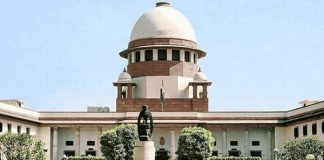Reproductive choice of women is a Fundamental Right Flowing from Article 21 of the Constitution: Rajasthan High Court
A minor girl was sexually assaulted and ended up conceiving. In order to seek for permission for termination of the pregnancy, an application was moved before the Special Judge, SC/ST Cases, Churu who directed for a medical examination to be conducted in order to ascertain the girl’s mental and physical status, as well as that of the fetus.
The Medical Board gave its opinion that there would be no serious threat to her life as a result of termination of pregnancy and this opinion was put before the Special Judge who transferred the case to the Court of the Special Judge, POCSO Act Cases.
The Special Judge of the POCSO Court passed an order holding that the application was not maintainable “because the length of gestation had gone beyond the threshold of 20 weeks prescribed by the Medical Termination of Pregnancy Act, 1971 (MTP Act)”. It was also held that the relief, if any, could be extended only by the High Court in its writ jurisdiction.
Accordingly, the survivor preferred a writ petition before the High Court of Rajasthan and an additional opinion was sought from the Medical Board regarding whether the termination of pregnancy would be conducive to the health of the girl or would it pose any serious threat to her life and body. The Medical Board expressed that no serious threat would pose to the survivor.
However, the Single Judge Bench of the HC rejected the petition and held that the fetus in the womb had a right to life as guaranteed under Article 21 of the Constitution of India.
The Order further stated that the “compelling State interest” in preserving life had to be balanced vis-à-vis the right of the Petitioner as a rape survivor from suffering unnecessary mental agony.
ARGUMENTS ADVANCED
Additional Advocate General Pankaj Sharma submitted to the Division Bench
• That the impugned Judgement was bad in the eyes of law as it ran contrary to the letter and spirit of the MTP Act.
• He contended that concept of comparative agony as evaluated by the Single Bench could not be employed as scientific research had established that child birth at an age below 18 years was harmful to the mental and physical well-being of the mother.”The possibility that the girl giving birth at such a tender age would suffer numerous future complications is imminent. He urged that in a case where conception is a result of sexual assault being committed on a minor girl, then her fundamental right to live as a normal person without undergoing trauma of giving birth at such a tender age would have to be given precedence over the fictional right of the child yet to be born”.
HELD:
The Division Bench of the Rajasthan High Court comprising of Justices Sandeep Mehta and Dr. Pushpendra Singh Bhati observed that the learned Single Judge had made the decision on the basis of two factors:
1. Fetus in the womb had developed considerably and, the unborn child had a right to life as per Article 21 of the Constitution of India.
2. Applicant society had volunteered to take care of the child after its birth, thereby ensuring its safe upbringing
Extensive Directions to Ensure that the Unfortunate Situation does not Recur
The Division Bench set aside the impugned Judgement and provided the following extensive directions in order to ensure that the situation did not recur:”
(i) that the State Government shall frame suitable guidelines to ensure that the victims of rape who became pregnant by sexual assault are provided timely and legal as well as medical assistance so as to ensure that they can exercise their reproductive choice in terms of the MTP Act;
(ii) that no sooner, the factum of a victim of sexual assault having become pregnant is reported, the Medical Officer/ SHO of the police station concerned, shall forthwith forward a report thereof to the Full Time Secretary, District Legal Service Authority concerned who, in turn shall, approach the victim with a female counsellor and sensitise her and her guardians about the remedies under the MTP Act;
(iii) in case, an application for termination of pregnancy is submitted by the guardian of the victim to the appropriate authority within the stipulated period of 20 weeks as provided by the MTP Act, the same shall be processed forthwith and suitable decision shall be taken thereupon within three days from the date of submission thereof;
(iv) in case, the application seeking termination of pregnancy is filed before a competent court then, such court shall forthwith summon the victim’s guardian and record his/her consent which shall deemed to be final. There shall be no requirement of intervention by police in the matter of consent seeking for termination of pregnancy;
(v) in case, where the threshold of 20 weeks gestation has been crossed, the Full Time Secretary, District Legal Services Authority shall assist the victim and her guardians if they so desire for approaching the High Court to file a writ petition seeking direction for termination of pregnancy in light of decisions of Hon’ble the Supreme Court and of this Court.
(vi) the identity of the victim shall not be disclosed at any stage during this process.”The Division Bench concluded the judgment by directing that the survivor would be provided all remedial measures as per the Juvenile Justice Act and that the District Collector of Jodhpur should ensure that the child born to her is brought up with strict adherence to the salutary process of the JJA. It ended on the note that in case the child was not adopted, he/she should be admitted into a good school upon attaining suitable age as per the Right of Children to Free and Compulsory Education Act, 2009.
By Priyanka of SPPU


